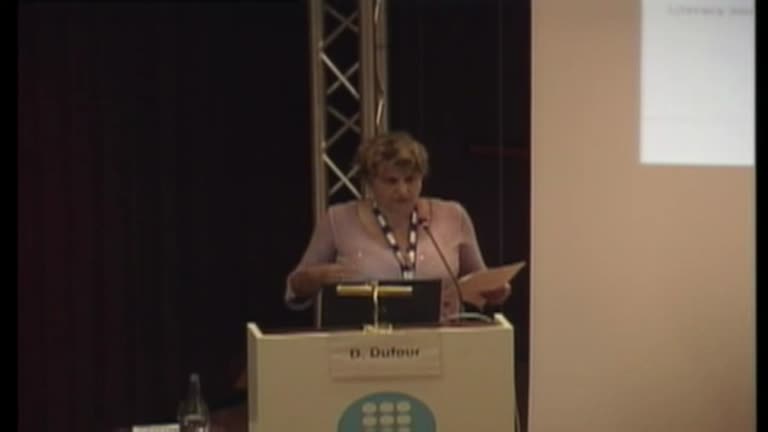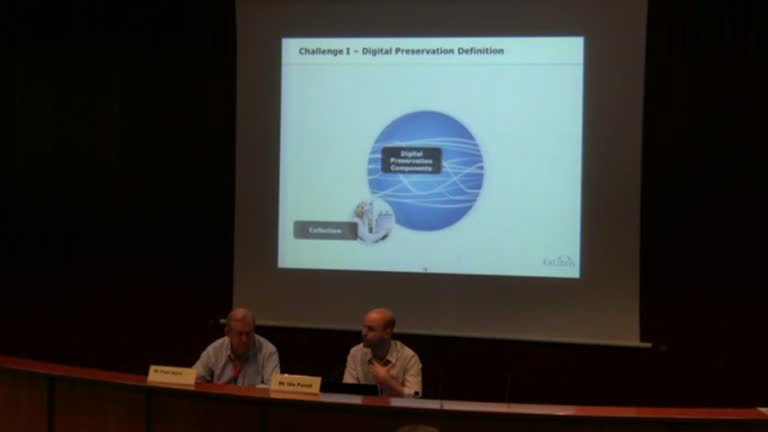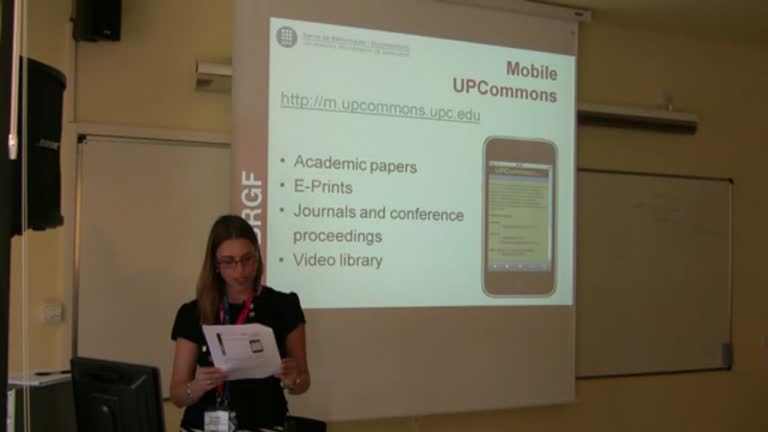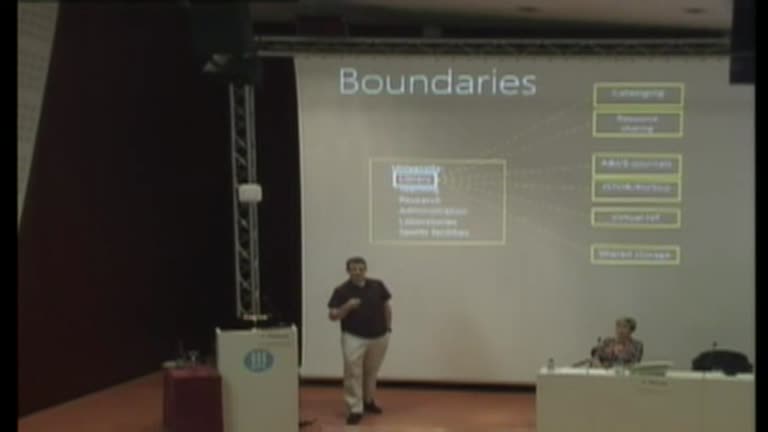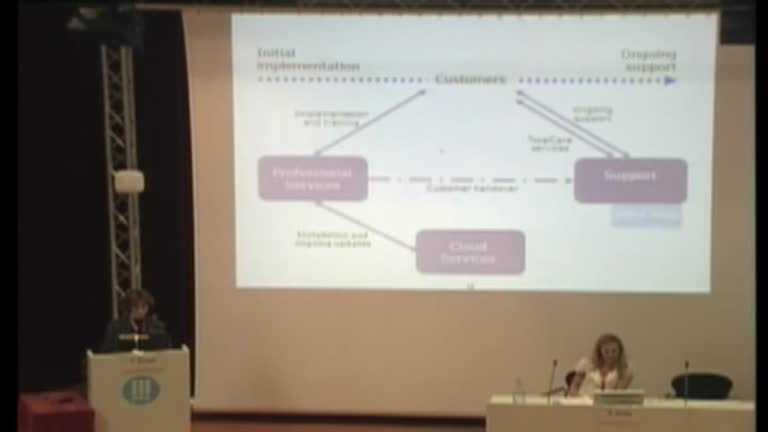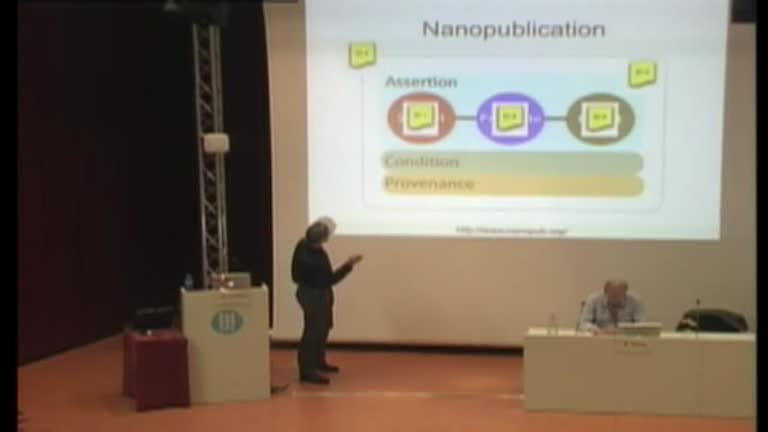Sèrie: LIBER Annual Conference 2011
1 de jul. 2011
Social Media in European Libraries
Accés obert
1 de jul. 2011
EBSCO Information Services is the leading service provider of e-journal, e-book and e-journal package and print subscriptions, e-resource management tools, full-text and secondary databases, and related services for all types of libraries, research organisations and corporations.
The challenges of building a digital preservation system
Accés obert
1 de jul. 2011
In the last two decades, digital technology has enabled us to create, use, and be enriched by information in ways that were unthinkable a generation ago. The growth in the number of digital items in today’s library collections has led to an understanding that new actions must be taken to preserve these digital assets and make them available to future generations.
While many organizations have systems in place for storing and managing digital objects, these systems are not always designed with preservation in mind. Digital preservation is about guaranteeing the continued usability of and access to digital content tomorrow and well into the future. Although preservation focuses on risk management, we would be mistaken if we equated preservation with backup or disaster recovery.
While many organizations have systems in place for storing and managing digital objects, these systems are not always designed with preservation in mind. Digital preservation is about guaranteeing the continued usability of and access to digital content tomorrow and well into the future. Although preservation focuses on risk management, we would be mistaken if we equated preservation with backup or disaster recovery.
29 de juny 2011
The handheld library. Developments at the Rector Gabriel Ferraté Library, UPC
Accés obert
29 de juny 2011
The purpose of this paper is to highlight the mobile services developed by the Rector Gabriel Ferraté Library (BRGF) of the Technical University of Catalonia (UPC), in Barcelona, Spain.
For several years the BRGF has implemented a considerable amount of technological features that have distinguished the library because of its technological vocation, but only those regarding mobile services are listed here.
We consider that the paper could be useful for libraries investigating new technological innovations to communicate and deliver their services to users in a moment when mobile services are an emerging topic in librarianship and information science literature.
By detailing the successive steps that have defined the as yet unfinished process to construct our mobile services portfolio we intend to present a detailed picture of the mobile services and features offered by the library in the university from a case study perspective.
For several years the BRGF has implemented a considerable amount of technological features that have distinguished the library because of its technological vocation, but only those regarding mobile services are listed here.
We consider that the paper could be useful for libraries investigating new technological innovations to communicate and deliver their services to users in a moment when mobile services are an emerging topic in librarianship and information science literature.
By detailing the successive steps that have defined the as yet unfinished process to construct our mobile services portfolio we intend to present a detailed picture of the mobile services and features offered by the library in the university from a case study perspective.
1 de jul. 2011
The research library, the university and the network
Accés obert
1 de jul. 2011
Libraries evolved to meet needs in a time of when information materials were distributed and consumed in physical form. Their services and their cooperative arrangements reflect this. Our discussion about digital has tended to focus on tools and collections, but what happens to the structure and organization of the library, its role within the university and the cooperative arrangements it makes, as the network reconfigures how research and learning are carried out? This presentation will present a framework for thinking about the research library as its services, expertise and boundaries change in a network environment.
30 de juny 2011
The transition to cloud-based library services - a vendor’s perspective
Accés obert
30 de juny 2011
Recent global changes, such as technological advances, evolving needs of students and researchers, and extensive budget cuts, are driving libraries to explore new operating models and to consider the benefits of hosted services of various kinds. As a vendor of library software for two and a half decades, Ex Libris has been anticipating the changes and building an infrastructure to support new, hosted modes of operation.
Towards machine-actionable scholarly communication
Accés obert
30 de juny 2011
Ever since their emergence, both the products of scholarly communication and the supporting services have mainly targeted human users. Gradually, however, products are emerging that are more friendly for use by machines, or are even solely designed for them. The emergence of a machine-actionable layer of scholarly communication happens at different levels, and touches upon primary research results, research data, and the research process itself.
The presentation will provide an insight in this ongoing evolution, and will provide concrete illustrations of this trend. It will also zoom in on research data as a new first class objects in digital scholarly communication, some of the challenges related to fully integrating this newcomer, and opportunities and challenges for libraries with this regard.
The presentation will provide an insight in this ongoing evolution, and will provide concrete illustrations of this trend. It will also zoom in on research data as a new first class objects in digital scholarly communication, some of the challenges related to fully integrating this newcomer, and opportunities and challenges for libraries with this regard.
- ← Anterior
- 1
- 2
- 3 (current)
- Següent →


